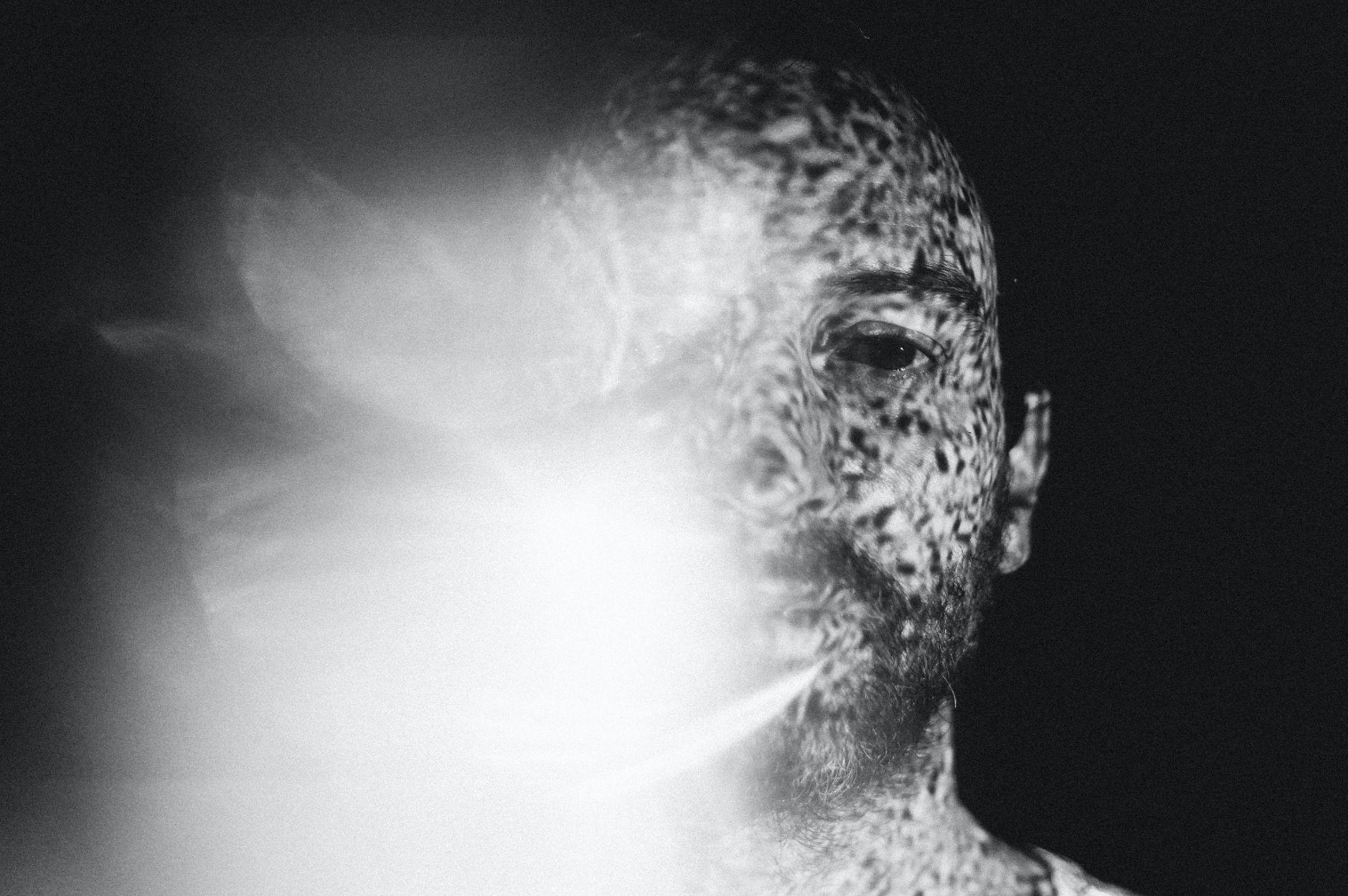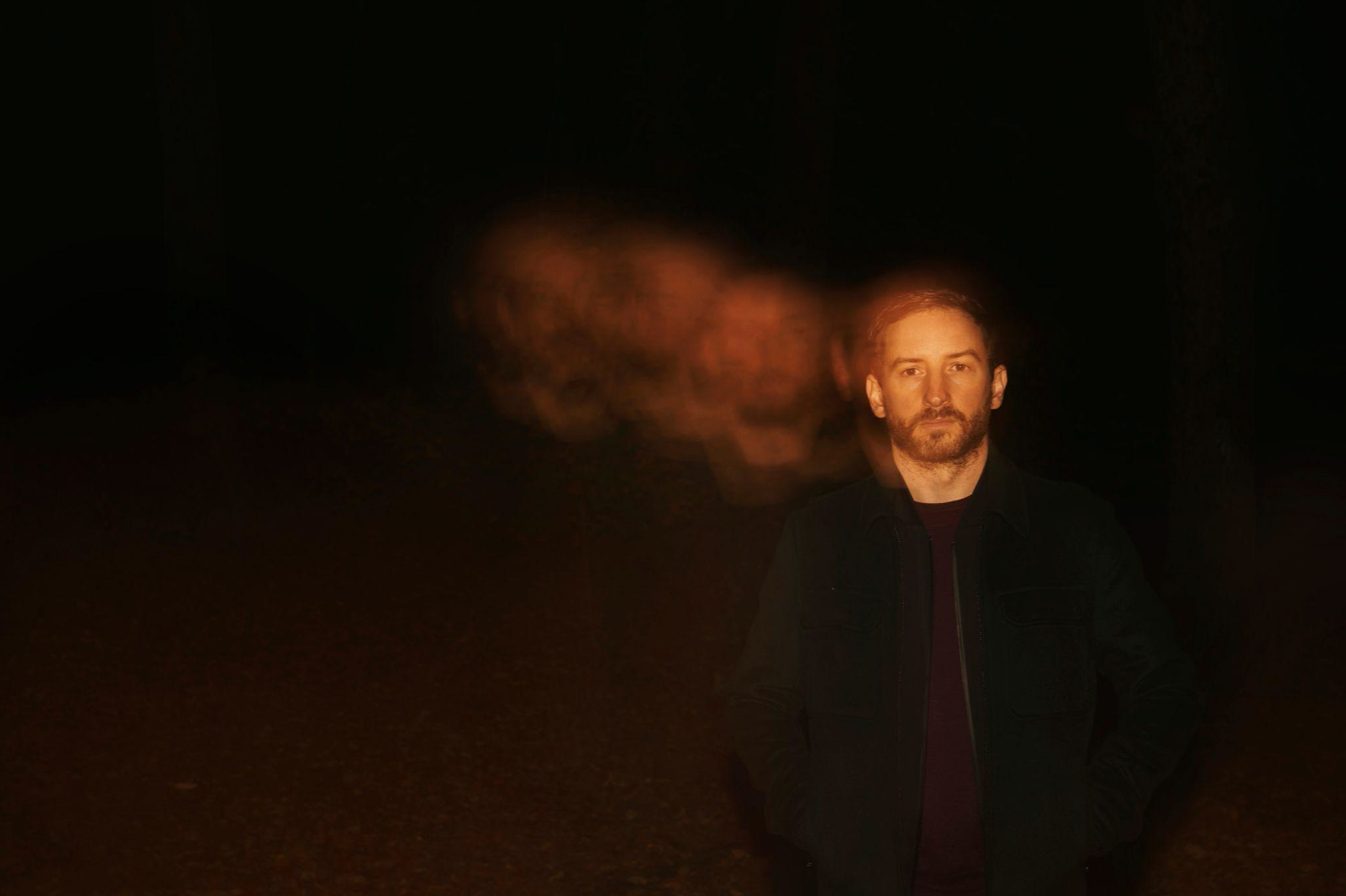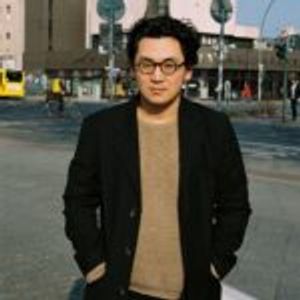Max Cooper is not only a leading figure in the world of electro music, he also owns a PhD degree in computational biology. He is an audiovisual artist with insatiable impulse for exploration who has earned a reputation for his outstanding visual expressions. He also has been well-received and has made numerous performances in Japan. His album Unspoken Words, released in March of this year, was inspired by a line from the Austrian philosopher Ludwig Wittgenstein’s Tractatus Logico-Philosophicus : “The limits of my language mean the limits of my world.”
He has been exploring expression other than “words” in the form of sound and images, and he dares to focus on a single “line” in this album. What you will hear and experience in this album is not only an immersive world of ambient sounds, but also a dynamic sound world of danceable and aggressive physical sensations.
We interviewed Max exclusively at TOKION to find out what went through his mind as he created a new conceptual yet simple masterpiece. What is he trying to convey through the sound he spun and the audio-visual world he created in collaboration with artists who seek cutting-edge expression?

A new album born as a result of confronting the limits of language and my own feelings
–How was the process of making this new album like?
Max Cooper (Cooper): The albums I have made in the past were constructed from visual and scientific ideas, from which my feeling was born. With this album, on the other hand, I started with purely internalized feelings, ideas that could not be expressed in words but could be expressed musically, and then created visual analogies to them. For each track, I collaborated with artist with different visual expression. (All of the videos for the tracks can be viewed at unspokenwords.net)
–What are some of the challenges you faced with this album?
Cooper: The challenge I faced was “how I could be honest with myself.” The whole project is about the inner conflict over expression. This is also connected to the story of the growth and eventual posthumanization of expression itself in the videos. Since I work within a specific genre and form of electro music, a musical language is always needed. If I get too caught up in that standardized language, my personal expression itself is undermined.
In that sense, the challenge for this work was “to identify my psychological state and feelings and convey them in a personal sound. That is why I had to constantly assess whether each choice was “really telling my own story” or whether it was “simply a formulaic musical expression.” That meant I had to be honest with myself.
–This may be connected to the background of the album title Unspoken Words, but do you think music can overcome the problem of language barriers?
Cooper: For me at least, music is a richer means of communicating my inner world than language. Objective ideas like science and everyday life are easy to convey, but when it comes to conveying what it is like to be myself, I can’t do it with words. But with music, I can express that experience in a direct form, and the essence of that experience is “how I feel.” Music is good at capturing how I feel about things.
–How was the music video for “Exotic Contents” made? I know it used the VQGAN and CLIP systems with Xander Steenbrugge? Did it help you explore the world of the song more?
Cooper: I was just stunned by the finished work. I had always been interested in Wittgenstein’s work, but I had never really delved into the original text to understand them. Looking at the music video created after facing his work, it felt like a melting pot of our world itself and the world of self-reference, and I discover something new every time I watch it. Machine learning systems throws us a new light, for example, when reading difficult original texts. In other words, I have come to the idea that depending on how we use them, they can be both our teachers and our new creations.
–Why were you inspired by Ludwig Wittgenstein?
Cooper: Wittgenstein explored how language can be ambiguous and misleading, and how it leads to philosophical questions. His writings are chock-full of jargons and references and require intense study to truly understand. Still, I turned to Wittgenstein’s writings when I was looking for a visual expression of the ideas for the “Unspoken Words” album, and it fit the theme I was facing at the time. In “Symphony in Acid,” Ksawery Komputery also sampled his texts to compose and create a music video that is in sync with the musical structure of my work.
Video and music are mutually interfering with each other
–You take a challenging visual approach with each film, how does this affect the musical value?
Cooper: Visual expression and the world of music are inseparable for me. I suppose they interfere with each other due to the nature of information. Every time I listen to music a visual image comes to mind. If I see a visual representation, I naturally come up with an idea for a piece of music in a same way. That is why I collaborate with many great visual artists to convey this, creating a “language” by giving information in the form of visual images to my songs and albums.
–What do you hope to convey to listeners through the album?
Cooper: My main wish is to communicate thoughts and feelings to each other. I think we all share a common inner state (collective unconsciousness). Being human is sometimes wonderful and sometimes difficult. That is why I think it is worthwhile if we can share that state and convey what is essentially important, away from the superficial, nonsense exhibition-like real world we live in.
I am trying to take people away from the everyday world to a better place. The information and technology of the record is full of surreal spaces that allow me to promote escapism in a 3D way.
–What are some of the most memorable moments in the making of the new album?
Cooper: The song “Ascent” was originally written with Salvador Breed and Martin Krzywinski at a beautiful church in Leuven, Belgium for a tactile surround audio-visual experience. The audience would lie on bass shaker beds that transmitted the bass directly to their bodies and view the image of cathedral ceiling of the church, which was mapped by Martin in the form of a 5-dimensional space and projected into the architecture. This was an intense experience. I tried to capture the religious and scientific intensity along with the direct tactile experience of weightlessness brought about by this system. This installation project was called “Transcendence,” and music was created to express the same idea: ascension. The feeling itself was indescribable, so I was able to participate in the project because it fit well with the album. The result is one of the most intense songs I have ever written.
–You are in the middle of an album tour, mainly in Europe and the U.S. How do you feel about playing the album in front of a large audience for the first time in a long time after the pandemic?
Cooper: It’s a lot of fun to be able to maximize the effect of a visual project in a huge space. I can create a 3D effect by layering translucent gauzes. Projecting the image on multiple surfaces of them creates a visual experience that feels as if it envelops the audience. The goal is to create the sense of escape from reality and the other-worldly sensations that we were looking for in music. We want to take audience somewhere they have never been before, which is a place filled with ideas and emotions that will leave a positive impact.
Performing in Japan is always amazing, and Japan is my favorite place. We have played in Fuji Rock in the beautiful mountains, the Japanese version of MUTEK, one of our most favorite festivals, and VENT with its amazing sound system. Every time was great fun and we are always looking forward to the next opportunity to come to Japan.

Max Cooper
Max Cooper is a British sound artist, producer, and DJ who began his musical career in 2000. Primarily working on solo live acts, he achieved success with his signature track “HermonischeSerie.” In 2014, he released his debut album, Human, a cinematic piece of electro music that freely combines elements of minimal techno, dubstep, glitch, and beats generated from acoustic instruments. He has performed in Fuji Rock Festival in 2015 and MUTEK.JP in 2016. His album Unspoken Words was released this March.
Direction Kana Miyazawa
PR Studio De Meyer

